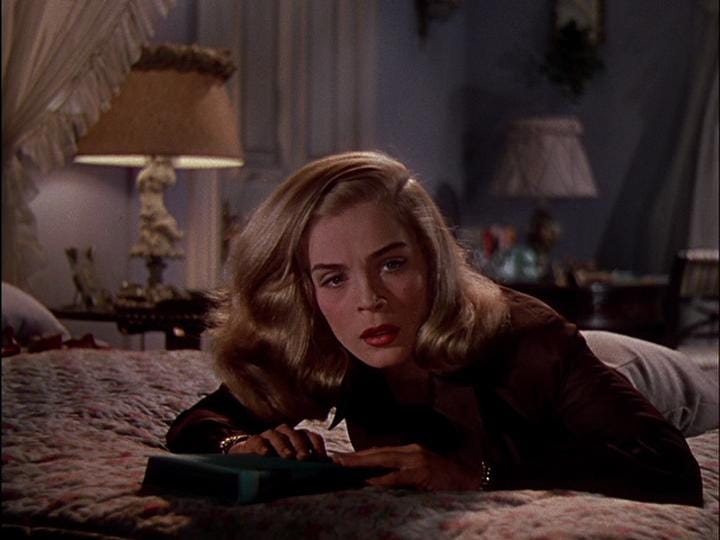David Cronenberg Speaks + New Podcasts with Amy Taubin and with Jourdain Searles
Taking solace in movies
Dear Last Thing I Sawfolk,
What better way to welcome the glorious springtime than a new chat with Amy Taubin on the podcast? Listen to our latest episode, which covers more than movies—books, gallery installations, TV series, the future of the planet, that sort of thing.
And just for my devoted readers, a bonus for this edition: an excerpt from a David Cronenberg interview I’m working on, talking about The Shrouds, now in theaters. Read on!
I’m also sharing an episode I posted earlier, with Jourdain Searles, a critic whom I’m always so happy to welcome on the podcast and who posts with an exceedingly sharp eye for films new and old.
That’s all for now. My thanks to all the supporters of The Last Thing I Saw!
Nic
THE PODCAST
[To play each episode, click the episode title, or click in the player below. Or find The Last Thing I Saw elsewhere...]
Amy Taubin on Dying for Sex, Zero Day, The Shrouds, Adolescence, Marina Zurkow, New J. Hoberman Book, Black Bag, Mickey 17, plus Warfare (Ep. 310)
Jourdain Searles on Lurker, Mad Bills to Pay, Dead Lover, Together, By Design, Desert Fury (Ep. 309)
Episodes of The Last Thing I Saw are available at many other podcast places.
BONUS TRACK
David Cronenberg’s The Shrouds is now in theaters. It’s about an entrepreneur who, in his grief, invents a way of observing his dearly departed wife within her grave. I talked with Cronenberg in October 2024 during the New York Film Festival. Here’s an edited excerpt from the interview I’m working on.
Nicolas Rapold: How did the story’s concept of a “GraveTech” camera come to be?
David Cronenberg: It's very straightforward and it's in [the Vincent Cassel character’s] dialogue. When his wife is being buried, he wants to be in the box with her. He cannot bear that she shall be underground and impenetrable to him from that moment on. And I had that same feeling. It's absolutely how I felt. Obviously, it's not very practical for you to get into this box, which is normally built for one person. So what do you do? Well, if you're a sort of a tech entrepreneur, you go to tech for your solution to that, which I am not, so at that point he and I part ways. I'm not an entrepreneur and, you know, I don't own a restaurant in a graveyard. Although I probably should. I mean, the way independent film is going, it might be a better career choice at this point.
And it's interesting because at one point I think people thought that somehow you could be in contact with this person who was dead, after death. And I did see it in an early description of the movie from a journalist who had not seen the movie. And the estate of Philip K. Dick came after me. They were very polite. I had met the Dick sisters, you know? Because at one point I wanted to do UBIK. And in UBIK there's the idea that the brain somehow still has memories and can still be accessed. And they thought that maybe I had really kind of pilfered this from UBIK. But I told my producers, "Just send her the script, you know. She's very bright there. She'll see that it's not the same.” And that was the case.
But it's interesting, because in this case it's a little stranger than that, which is: you are accepting that this person is dead. You still don't want to let go. And because your relationship was so physical, it makes some bizarre emotional sense to follow what happens to their physical body. And so that’s basically it. And I had that feeling, but what I did about it was to make a movie.
NR: So there are no secret cameras in a grave.
DC: No. Although I do have a piece of sidewalk in Canada's Walk of Fame, and I really said, when I die, you should put me under that stone and use some Lucite or something that you can see through, so that people can watch me decay as they walk over me.
NR: They said yes, of course?
DC: Well, they haven't said no.
THIS CRITIC’S PICKS
Volver (Criterion)
The Little Girl from Hanoi and When the Tenth Month Comes (Criterion) I first saw these many years ago at the Jeonju film festival where they bowled me over
The Taking of Pelham One Two Three (Criterion)
Grand Tour (MUBI)
In the Loop (MUBI)
THE END
Here I may end with a song.
ABOUT ME
Welcome to The Last Thing I Saw! I’m your host, Nicolas Rapold. You can get in touch re: writing, editing, programming, moderating, podcasting, etc. at
nicolas.rapold[at]gmail.com
Besides hosting the podcast, I’m a writer, editor, and programmer. My features, interviews, festival reports, and reviews are published in The New York Times, Screen Slate, Sight & Sound, Filmmaker, Air Mail, The Financial Times, and W Magazine. (Dearly departed publications include The Village Voice, Stop Smiling, The New York Sun, and The L Magazine.) I’m also proud of the film series and one-offs I’ve programmed, revivals and premieres, so do drop me a line if you’d like to collaborate.
Editorially speaking, I worked as editor-in-chief of Film Comment magazine, where I was for 15 years in all. I assigned and edited both web and print, hosted The Film Comment Podcast and Talks, curated and hosted Film Comment Selects screenings, learned from brilliant writers, and wrote a lot, including interviews with Spike Lee, Robert Pattinson, Juliette Binoche, Pedro Costa, and Frederick Wiseman. Film Comment received the Film Heritage Award from the National Society of Film Critics.







